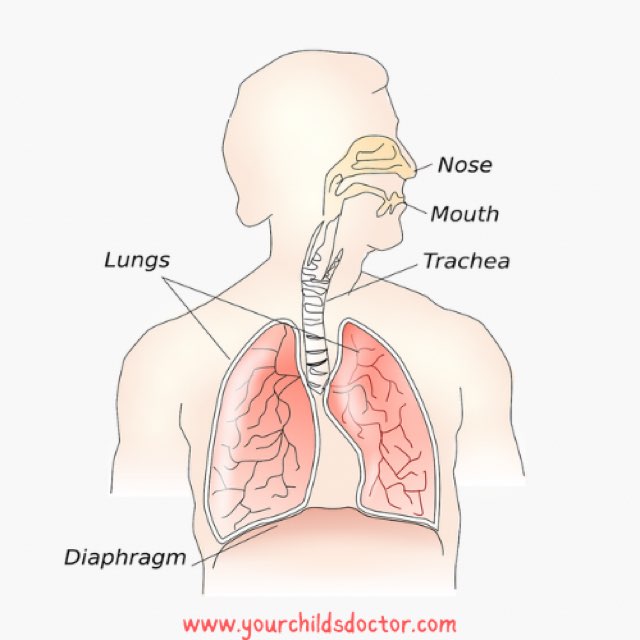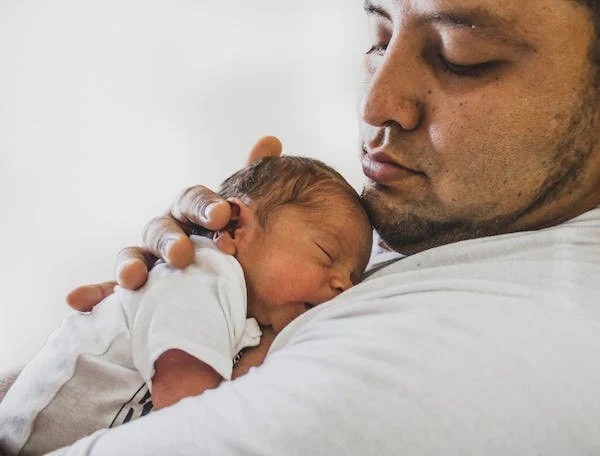Parenting is quite a challenging journey. Trivial events can make new parents wonder, what went wrong. “Hiccup” in baby is one such issue. Many parents deal with it everyday, without having any clue. So we wrote this post to explain, in detail, hiccups causes in newborns. Here we have listed 6 most important factors.
Also we have noted down the scenarios when you must consult a physician for the same. Keep reading to find out more.
What is hiccup
Hiccup or Hiccough derives its name from the word ‘hic’. In medical language it is better known as “singultus”. Hiccups are nothing but repeated ‘hic’ sounds produced due to jerky contraction of diaphragm.
Diaphragm is structurally a muscle, that separates chest from abdomen. It is a dome shaped muscle that stays just below rib cage. This is the main muscle of breathing.
Diaphragm’s normal function is to contract and build a negative pressure inside lung so that a person can breathe in air. This process is called inspiration. Hiccup is nothing but incomplete inspiration.

How hiccups happen ? What is the mechanism of hiccups?
Hiccup happens when there is abrupt and reflex contraction of diaphragm. This makes air to rush inside lungs. Immediately following this, there is contraction of vocal cord inside larynx.
As air is trying to rush inside, against closed vocal cords, it makes a loud ‘hic’ sound. This is how hiccup takes effect.
- Key mechanism here is a stimulus that causes irritation of nerve, most commonly phrenic nerve. This phrenic nerve supplies diaphragm. So phrenic nerve irritation manifests as partial and rhythmic diaphragm contraction.
- There is also another theory to it. Stomach is positioned just under diaphragm. So when stomach is distended, it rubs against diaphragm. This tickles diaphragm and initiates hiccups.
Hiccup : A vestigial reflex ?
Much like sneezing and coughing, hiccup is a reflex reaction of body. But it has no purpose. Unlike sneezing and coughing which have some protective function, hiccup has none. That’s why as per researchers, hiccup is a “vestigial reflex” ( non functional reflex ).
However some categorise it as an “evolved burping reflex”, whose function is to take out excess gas from tummy.
Hiccups causes in adults
Adults too are affected with hiccup sometimes. The causes of hiccup in adult can be one of the following:
- Eating too fast
- Having too much food
- Taking too spicy food
- Drinking carbonated beverages ( e.g – coke )
Basically these are the stimuli that irritates a nerve ( most commonly phrenic nerve ) or tickles diaphragm. This prompts diaphragm to contract abnormally.
At times irritation of another nerve called vagus nerve may lead to hiccups as well.
HICCUPS CAUSES IN NEWBORNS
So what causes hiccup in a baby ? Is it related to feeding or due to some underlying disease? Let us explore 6 most common hiccups causes in newborns. And what is the salient mechanism behind it.
1.Feeding too fast
If a newborn baby is too hungry then it will try to suck milk very fast. This distends stomach quickly. Which then irritates diaphragm and triggers hiccup.
2.Over feeding
Many a times babies don’t have any clue how much to feed. They will take much more milk than required. This expands stomach too much. This stomach pushes on diaphragm and provokes it for hiccup.
3.Aerophagia
Aerophagia or swallowing in of air while feeding, is a common phenomenon in babies. This excess gas gets into stomach and irritates vagus nerve, hence leading to hiccup.
4.Reflux
Some babies have a condition known as GER ( gastro oesophageal reflux ). Here milk will regurgitate up from stomach to food pipe. This milk is acidic. So it brings about a burning sensation and discomfort in oesophagus / food pipe. This stimulates vagus nerve.
Hence if a baby is having recurrent milk regurgitation to mouth, along with excess crying and hiccups, then reflux is a strong possibility.
If gastro oesophageal reflux ( GER ) is severe and prolonged then it is said to be “GERD” or “gastro oesophageal reflux disease”.
In GERD, along with intractable hiccups, baby will not be able to gain weight. It presents with repeated episodes of cough and wheeze. In case aspiration of milk into airway is more, then it leads to aspiration pneumonia.
5.Immature swallowing reflex
Swallowing reflex is immature in preterm babies. These babies have not yet developed proper coordination between swallowing and breathing. That is the reason, they catch hiccups while trying to feed.
6.Other causes
If hiccup is a persistent hiccup ( lasts continuously for > 48 hours ) or is an intractable hiccup ( persists for more than 2 months ) in a baby then parents need to consult a physician.
These kind of scenarios are extremely rare. But if occurs then underlying pathology must be ruled out. Following are some persistent or else intractable hiccups causes in newborns.
- Brain pathology – Brain diseases like infection, stroke, tumour, trauma etc can cause chronic singultus or hiccup.
- Lung pleura disease – Pleura is a membrane that covers lung. Pleurisy ( inflammation of pleura ) or pneumonia in lungs can set off persistent hiccup.
- Diaphragm related disease– Any abscess or mass just adjacent to diaphragm can incite hiccup.
- Gut pathology – Diseases of stomach and oesophagus rarely may result in hiccup as well.
- Psychological – Factors like overboard excitement or fear can induce hiccup.
Point here to be noted is that, there is a reflex arc pathway for hiccup known as “hiccup reflex”. Through this, hiccup signal passes. Any lesion along reflex arc can give rise to persistent or chronic hiccup/ singultus.
Tips for parents on baby hiccups
Hiccup is customary for babies and mostly are harmless. Parents need not worry about it, if baby is getting intermittent hiccups. Unless it is persistent or intractable as discussed above no need to stress on it.

In this article we have addressed in details what parents can do at home to prevent hiccup and how to cure hiccups. It is a must read for all parents.
Conclusion
We hope this article makes it simple to understand the mechanism behind hiccup. It also explains all possible hiccups causes in newborns, to new parents in simple words. Share this article with new parents and make them more aware.
Caution
All the informations provided here are for educational and awareness purpose only. Kindly do not use these as alternative to medical consultation.




